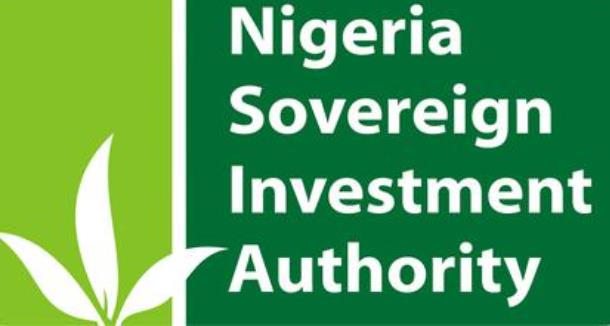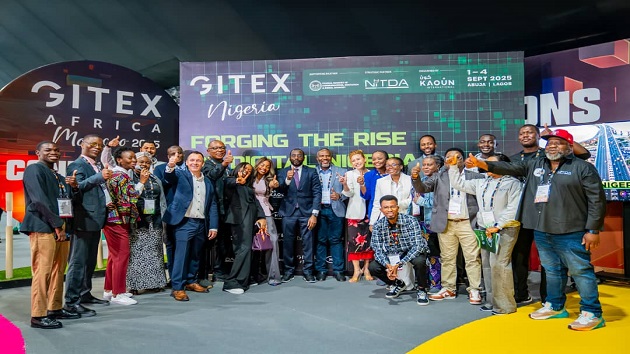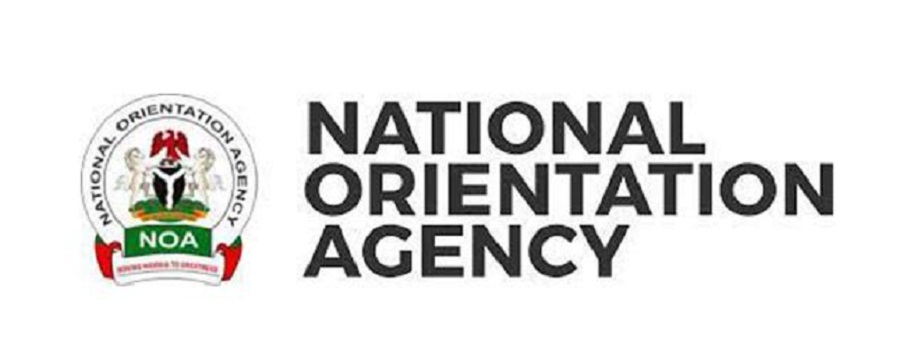News
NSIA, IFC To Stake $500m Into Renewable Energy Development In Nigeria

Nigerian Sovereign Investment Authority (NSIA) in partnership with the International Finance Corporation ( IFC) World Bank’s investment outlet is committing $500 million to renewable energy projects in Nigeria.

NSIA’s intervention in renewable energy is being carried out via its latest outlet – Renewables Investment Platform for Limitless Energy (RIPLE). Under RIPLE, the Authority in conjunction with IFC would be undertaking a pilot initiative located within the Tokarawa Industrial Hub in Kano State
It involves setting up a generation and distribution system to meet 70MW of unsuppressed energy demands of industrial activities, commercial enterprises, and residential customers in an area covering about 9,000 connections.
The project will be extended to other parts of the country in the course of time.
NSIA and IFC signed a formal agreement on renewable energy over the weekend in Abuja. The agreement entails NSIA committing $25 million as a seed investment to the project.
Speaking to reporters at the event sidelines, Managing Director/ Chief Executive Officer of NSIA, Mr Aminu Umar – Sadiq described the moment watershed.
“I think this is a watershed moment for the renewable energy space in Nigeria. We are hoping that this fund we are targeting, about $500 million will focus on renewable energy space in general. The strategy is in three folds.
“The first is around diesel displacement, the second is around franchising in general, and then the third is around the backward integration towards PV manufacturing in Nigeria ”
“Naturally, we start with a proof of consent project with baby steps. However, as always the ambition of the NSIA and the IFC as it relates to this fund, is to scale up; to be able to go large.
“We are hopeful that in the course of time, we’ll begin to feel the impact of projects that we are co-developing as well as co-executing for the benefits of Nigeria and Nigerians”, explained NSIA MD.
Speaking about funds commitment, he said $25 million was pledged by the NSIA as committed capital. The IFC, he added was also co-developing transactions up north by a franchise project of 70 megawatts in Kano state. He estimated the project should be delivered within a space of three to four years.
” There are a number of important considerations within your control and there are also a number out of your control. Typically in executing a large-scale infrastructure project, you are talking about three to four years. We are hopeful we should be able to implement a couple of our initial projects within that time.
“Upon the conclusion, by the time we’ve basically gone very far in implementing our first couple of projects, and we have a proof of consent in terms of the portfolio of projects that we can show external investors, then we’ll embark upon that we looking at about two to two and a half years”, he said.
Sadiq was confident Nigeria will overcome her power challenge.
” We are investors but by the grace of God that is the ambition- to be able to meet our power deficit through the generation of sustainable, renewable energy in Nigeria”.
Speaking in an interview, Mr Dan Craft, IFC Regional Manager ( Africa) underscored IFC’s interest on the renewable energy project in Nigeria.
“We are pretty much interested in everything you heard in that speech- access, efficiency, security, all on a climate-friendly basis. Our interest in the project is, working with credible partners who are committed to the long term to develop a project on a fully sustainable basis, delivering the most cost-effective power, as clean as possible. It’s all good. This is our interest in the project. We would love to find more partners like NSIA, but they don’t grow on trees”.
” At this early stage, what we’re working on is, development capital to seed the platform. But whenever we do this, it’s with a longer-term investment horizon. We’re not interested in just the upfront seed.
“In fact, if there is no long-term horizon, then we don’t do the first bit either. So what we’re looking at, is enough on a percentage share basis to get the thing moving. And then as more projects enter, the funding will follow.
Essentially, we don’t really have an upper limit for what we would like to finance in this space. Our problem is finding the opportunities to do so, which is why we’re so excited about this”, said IFC Regional Manager.
He said investment in renewable energy isn’t a new terrain as according to him, “We have done a number of renewable energy investments in solar and wind and hydro and transmission and distribution”.
“Like I said when I was speaking, it’s about finding the right way into the market. Bringing any of those solutions off the shelf doesn’t tend to work. This is the first step.
And as far as I know, certainly on the African continent, this is the first one of these we’ve done in terms of a platform”, he said.
News
DG NITDA Urges Foreign Investors to Tap into Nigeria’s Digital Future

In a spirited and visionary appeal, the Director General of the National Information Technology Development Agency (NITDA), Kashifu Inuwa CCIE, has issued a compelling invitation to global investors to explore Nigeria’s burgeoning digital economy, describing it as a land of opportunity powered by a youthful, tech-savvy, and highly innovative population.

The DG made this known when he engaged with global key players in the IT sector, including startups and investors during a GITEX Breakfast meeting at the GITEX Africa 2025 which is currently being held in Marrakech, Morocco.
Speaking ahead of GITEX Nigeria 2025, a major technology and investment conference set to take place from September 1 to 4 in Abuja and Lagos, Inuwa painted a vibrant picture of Nigeria’s digital landscape where according to him, innovation meets opportunity, and where government commitment aligns with grassroots entrepreneurial drive.
“Nigeria is a country with a large, youthful, innovative, creative, and highly competent workforce, where startups and scale-ups can continuously thrive, and where entrepreneurial spirit and technological advancement shape and create the landscape,” he stated.
He emphasised that Nigeria, with over 70% of its population under the age of 25, holds one of the youngest populations globally, positioning it as a talent hub for the Fourth Industrial Revolution.
The NITDA boss further noted that the government’s vision aims to elevate Nigeria into an emerging global digital economy through comprehensive reforms, infrastructure investment, and an aggressive digital literacy agenda.
“The president is also bullish about building our digital infrastructure and wants to establish our digital sovereignty, providing a platform for our citizens to develop digital offerings that Nigeria can take to the world,” he said.
While outlining initiatives aimed at embedding digital skills across the formal education system and enhancing national digital capabilities, he noted that the nation is not just teaching young people to consume technology but empowering them to create it.
Recognising the importance of digital sovereignty, Inuwa added “We are also promoting cloud adoption because you cannot succeed today with on-prem infrastructure, but you need to be on the cloud, and you need to have agility.”
Underscoring the significance of Nigeria and Africa’s digital native population and boundless talent, Inuwa mentioned that the continent should not just participate in the Fourth Industrial Revolution but should lead.
He disclosed that the GITEX Nigeria conference is set to be a milestone moment with Abuja which is the nation’s policy capital, hosting discussions on investor-friendly reforms and policy frameworks, and Lagos, the home to Africa’s most vibrant startup ecosystem, showcasing the energy, innovation, and investment potentials.
“We have the talent and we have the digital native population and we are nurturing an innovative and entrepreneurial ecosystem because we need to challenge the status quo, we need to use technology to disrupt the way we do things and we need to create a collective intelligence where people work with technology to make lives better and that is the Nigeria we are creating,” he concluded.
In his remark, the sales director of ZOHO, Mr Vijayaragavan Venugopal stated that Zoho has been predominantly focusing on the African market for the last 7 years and has witnessed tremendous growth in the African market, with Nigeria leading at the forefront.
“We are happy that we are going to be there in Nigeria along with GITEX and the event will not only empower the Nigeria market but the whole of Africa and it is going to be an opportunity to gather amongst each other, talk about tech, and grow together in the entire African market,” he said.
While giving her remark, the CEO of Alami Capital, Olu Olufemi White, highlighted the importance of investing in startups that center people in their solutions and challenged traditional investment approaches that ignore the human element.
Expressing her commitment to transforming communities through thoughtful and strategic innovation, she emphasised the need for impactful, innovative, and scalable ventures while however, noting that technology can only thrive with reliable energy and sustainable finance.
Appealing to everyone for active participation at the forthcoming GITEX Nigeria while making reference to the market activity from Google, Cisco, and Flutterwave, White said “You can start to see what happens when you support us. Please don’t wait till we become big and the rest of the world begins to tell our stories, we want you to tell it for us and we want to walk and work hand in hand with you to build the nation of our dreams.”
News
EFCC Assures CBEX Investors of Fund Recovery Amid Investigation

Economic and Financial Crimes Commission (EFCC) has reassured investors affected by the collapse of the Crypto Bridge Exchange (CBEX) a digital trading platform that their funds will be recovered, though the process may take time.

Speaking on Channels TV’s Morning Brief on April 16, EFCC spokesperson Dele Oyewale emphasized the agency’s proactive measures in profiling CBEX and alerting Nigerians about potential Ponzi schemes prior to its crash.
Oyewale highlighted the EFCC’s ongoing collaboration with Interpol and international development agencies to bring the perpetrators to justice.
He assured the public that the commission remains committed to safeguarding investors and ensuring accountability.
The EFCC had previously listed 58 Ponzi scheme companies in March, warning Nigerians to exercise caution with unregistered investment platforms.
Despite the challenges, Oyewale reiterated the commission’s dedication to recovering funds and preventing future occurrences.
This development underscores the importance of vigilance and due diligence in financial investments, as the EFCC continues its efforts to protect Nigerians from fraudulent schemes.
News
NOA Uncovers Fraud by Banks, Universities in Students Loan Scheme

National Orientation Agency (NOA) has revealed that an investigation by its Community Orientation and Mobilisation Officers (COMO) uncovered unethical practices by some tertiary institutions, in collaboration with certain banks, that are depriving students of their rightful access to the Federal Government Student Loan Fund.

Paul Odenyi, deputy director of Communications and Media, in a statement Sunday, disclosed that several universities and financial institutions have been found engaging in fraudulent activities that prevent students from receiving the loans allocated to them.
Mallam Lanre Issa-Onilu, director general, NOA, shared these troubling findings following a high-level meeting with Mr. Akintunde Sawyerr, managing director, Nigeria Education Loan Fund (NELFUND), over the weekend.
According to NOA, preliminary reports led to an urgent intervention from NELFUND after it was discovered that some university officials had deliberately withheld critical details about student loan disbursements.
Further feedback from NOA confirmed that certain institutions, in collusion with banks, have intentionally delayed payments to approved applicants for dubious financial gain.
Additionally, some universities do not acknowledge the disbursements made by NELFUND to students.
Sawyerr confirmed that certain institutions have withheld information about loan payments issued in students’ names while still demanding tuition fees from them.
He warned that NELFUND is ready to take legal action against institutions found guilty of engaging in fraudulent practices.
He stated, “Recent findings by NELFUND have shown that some institutions have received student loan disbursements directly into their accounts yet neglect to inform the affected students or record the payments in their financial records, leading to unnecessary confusion.
“Withholding critical financial information from students is not only unethical but also a breach of the principles on which NELFUND was founded.
“We are prepared to take legal action against any institution engaged in such deceptive practices.”
The investigation revealed that in some instances, universities continued to demand full tuition payments from students, despite having already received the loan funds intended to cover those fees.
According to the NOA, this constitutes a gross violation of student rights and a betrayal of public trust.
Issa-Onilu, therefore, issued a strong warning to the institutions and collaborating financial institutions, demanding an immediate end to these actions.
He also directed all NOA state directorates to intensify feedback collection from students nationwide to aid the Federal Government in identifying and penalising the erring parties.
The NOA emphasised its commitment to transparency, accountability, and ensuring that students benefit fully from the government’s intervention in education financing.
The statement added that the investigation remains ongoing, and further actions are expected in the coming weeks.

 General News2 days ago
General News2 days agoWorld Bank Announces $800m Support for Nigeria’s CCT Initiative

 General News3 days ago
General News3 days agoSanwo-Olu, Others Grace Launch of 50-Bed Hospital in Surulere by Avon Medical

 E-Financial3 days ago
E-Financial3 days agoCBN Pumps in Additional $150m into Forex Market to Safeguard Naira

 E-Financial3 days ago
E-Financial3 days agoSEC Says CBEX, other Unregistered Digital Platforms are Illegal

 Telecom3 days ago
Telecom3 days agoMTN, Meta Partner to Enhance Voice and Video Calling Quality

 Broadcasting3 days ago
Broadcasting3 days agoKONFAM 89.5 FM Hits Airwaves in Lagos Tomorrow

 E-Business3 days ago
E-Business3 days agoSERAP Calls for Withdrawal of Nigeria’s Data Act Amendment

 E-Financial3 days ago
E-Financial3 days agoKenyan CBN Okays Access Bank Full Acquisition Of NBK




























